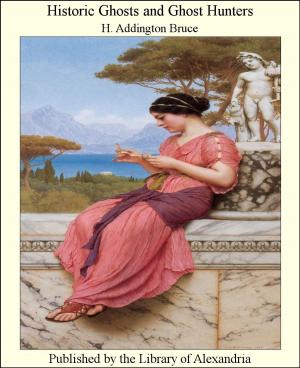History of the English People: Early England, 449-1071; Foreign Kings, 1071-1204; The Charter, 1204-1307; The Parliament, 1307-1461; The Monarchy 1461-1540, Puritan England, 1603-1660, the Revolution, 1660-1760; Modern England, 1760-1815 (Complete)
Nonfiction, Religion & Spirituality, New Age, History, Fiction & Literature| Author: | John Richard Green | ISBN: | 9781465559654 |
| Publisher: | Library of Alexandria | Publication: | July 29, 2009 |
| Imprint: | Library of Alexandria | Language: | English |
| Author: | John Richard Green |
| ISBN: | 9781465559654 |
| Publisher: | Library of Alexandria |
| Publication: | July 29, 2009 |
| Imprint: | Library of Alexandria |
| Language: | English |
EARLY ENGLAND 449-1071 AUTHORITIES FOR BOOK I 449-1071 For the conquest of Britain by the English our authorities are scant and imperfect. The only extant British account is the "Epistola" of Gildas, a work written probably about A.D. 560. The style of Gildas is diffuse and inflated, but his book is of great value in the light it throws on the state of the island at that time, and above all as the one record of the conquest which we have from the side of the conquered. The English conquerors, on the other hand, have left jottings of their conquest of Kent, Sussex, and Wessex in the curious annals which form the opening of the compilation now known as the "English" or "Anglo-Saxon Chronicle," annals which are undoubtedly historic, though with a slight mythical intermixture. For the history of the English conquest of mid-Britain or the Eastern Coast we possess no written materials from either side; and a fragment of the Annals of Northumbria embodied in the later compilation ("Historia Britonum") which bears the name of Nennius alone throws light on the conquest of the North. From these inadequate materials however Dr. Guest has succeeded by a wonderful combination of historical and archæological knowledge in constructing a narrative of the conquest of Southern and South-Western Britain which must serve as the starting-point for all future enquirers
EARLY ENGLAND 449-1071 AUTHORITIES FOR BOOK I 449-1071 For the conquest of Britain by the English our authorities are scant and imperfect. The only extant British account is the "Epistola" of Gildas, a work written probably about A.D. 560. The style of Gildas is diffuse and inflated, but his book is of great value in the light it throws on the state of the island at that time, and above all as the one record of the conquest which we have from the side of the conquered. The English conquerors, on the other hand, have left jottings of their conquest of Kent, Sussex, and Wessex in the curious annals which form the opening of the compilation now known as the "English" or "Anglo-Saxon Chronicle," annals which are undoubtedly historic, though with a slight mythical intermixture. For the history of the English conquest of mid-Britain or the Eastern Coast we possess no written materials from either side; and a fragment of the Annals of Northumbria embodied in the later compilation ("Historia Britonum") which bears the name of Nennius alone throws light on the conquest of the North. From these inadequate materials however Dr. Guest has succeeded by a wonderful combination of historical and archæological knowledge in constructing a narrative of the conquest of Southern and South-Western Britain which must serve as the starting-point for all future enquirers















